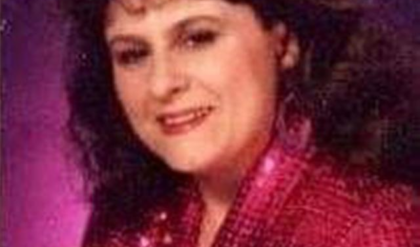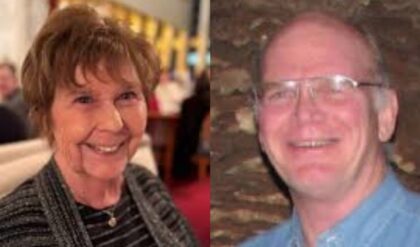
Girl Talk is a weekly look at women in film — past, present, and future.
Jodie Foster isn’t retiring any time soon, but the Oscar-winning actress and four-time film director is already thinking hard about her legacy. “If I have an apology to make for my whole career [as] I’m being given my last rites, [it’s that] I’m really sorry that it was very hard for me to say yes,” she told IndieWire during a recent interview. “I didn’t make as many movies as I was hoping I would. … I do regret that I didn’t direct more in all those years, that I only managed to direct four movies in the course of 30 years or something. That’s just ridiculous, but I got busy. I had kids. I had a company. I was acting.”
It doesn’t take much to get Foster, who started acting when she was just a toddler, to open up about her professional philosophy. More than anything, it’s talking that comes easily to her. “I always liked to tell my mom when I was little, and my mom asked me what I would do when I would get older, I always said I just wanted to be a professional talker,” said Foster, currently making the publicity rounds for her role in the action-thriller “Hotel Artemis.” “That’s what I ended up doing.”
Foster’s admission that she regrets not making more films — she’s made only four between 1991 to 2016, including “Little Man Tate” and “Money Monster” — came after being asked if there were any long-simmering dream projects she still hoped to make. The short answer was no; the long one had to do with a driving force behind it all. For Foster, it boiled down to making space in her life for stuff that wasn’t tied up in work, a tough choice for anyone, but an especially fraught one for someone who literally grew up under Hollywood’s glare.
“I guess it’s just my personality, too,” she said. “I wanted to be more than just my job. I had to be. If not, my brain was gonna explode … I really had to fight to have a real life, to be able to travel and have those vacations, and go buy my kids shoes, and go to the pediatrician, and be on their college tours. I really valued my life and I was very busy making sure that I prioritized that.”
Despite the finality of talking about final regrets and last rites, Foster is still looking forward to a future that could see her returning to the director’s chair again. “I’m trying to make up for lost time, but it’s hard because I’m still just as picky as I ever was,” she said with a laugh.
 “Hotel Artemis”Matt Kennedy
“Hotel Artemis”Matt Kennedy
She’s also just as picky when it comes to her on-screen roles. Foster’s latest acting gig — her first in five years — comes care of a starring role in Drew Pearce’s feature directorial debut “Hotel Artemis.” The multi-hypehnate said she searched out the role herself, an emotionally fragile character known only as “The Nurse” who runs a private hospital for criminals in 2028 Los Angeles. “I had been looking for something that felt more of a transformation, that felt more of a brand new character that nobody had ever seen me play before,” Foster said.
The actress has long made such transformations a priority, and it’s where her some of that self-professed pickiness stems from. “A lot of things I don’t want to do, I’ve already done,” she said. “Some of it is just, like, oh, do I have to do that again? It’s a long career. I’ve been in the business for 52 years. It’s a long time to do the same thing. There are some things that might be wonderful, but that I’m just not interested in.”
After her Oscar win for “The Silence of the Lambs” in 1992, Foster got a quick taste of how the industry loves to pigeonhole its stars. The reward for winning Best Actress: more roles like FBI cadet Clarice Starling. Foster wasn’t interested.
“I got offered the exact same thing over and over again,” Foster said. “It’s not a surprise, that’s a good risk for somebody. It’s a good bet for them that if you were just incredibly successful with something and a lot of people went to go see it, that if they advertise you doing the exact same thing, that they’ll get twice as many people. It’s understandable why the business works that way, but I didn’t. I went off and did a lot of different stuff.”
Foster hasn’t been acting much in recent years, and before her 2013 supporting role in “Elysium,” it had been two years since “Carnage” and “The Beaver” (which she also directed) and five years since her work in the family adventure “Nim’s Island.” Pearce’s film offered her a juicy, transformational role, and one built for an older actress. That’s still a rarity in Hollywood, though Foster thinks it’s getting better. She’s playing the long game, after all.
“I always feel like it’s incredibly shortsighted to take one year and draw any great conclusions about it,” she said. “I think the culture has progressed and has become more conscious, and I think that’s also been reflected in the movies that we see. Maybe it was a little slow, but I think that’s really happened in terms of women’s roles. I think that there are many more older, interesting careers now than there used to be.”
“Hotel Artemis” is also Foster’s first bonafide lead role since 2007’s “The Brave One,” another film with political undertones that intrigued Foster. While Pearce’s film is mostly a rollicking action ride about criminals double-crossing each other during a lawless time in the city of angels, the film also folds in timely subplots about police brutality, the healthcare system, the opioid crisis, robotic technology, and dwindling natural resources. Though Foster doesn’t consider herself a political person, she has long gravitated towards projects that include themes ripe for that sort of discussion.
 George Clooney and Jodie Foster on set of “Money Monster”Atsushi Nishijima/Tristar/Lstar Capital/Kobal/REX/Shutterstock
George Clooney and Jodie Foster on set of “Money Monster”Atsushi Nishijima/Tristar/Lstar Capital/Kobal/REX/Shutterstock
“You have to consider, where are we heading? Where are we going? What’s going on? Sci-fi movies are super-prescient about where we’re headed,” she said. “That’s what I love about ‘Black Mirror,’ too, this idea that technology that we have created, we created to help us have our dreams, to do what we wanted has given us exactly what we wanted. It’s a reflection of our messed up psychology.”
Foster directed her first episode of “Black Mirror” last year, a canny combination of modern unease and familial drama that centered on a mother and daughter driven apart by intrusive technology. The rise of quality television — the kind that values directorial vision — surprised even an industry vet like Foster.
“I think we didn’t see it coming because for so long, the two worlds were so separate, and there wasn’t a lot of quality on television, really, until the cable revolution really,” she said. “Cable and streaming were willing to do things that features weren’t willing to do anymore because they had gotten themselves into kind of a corporate bind. There was the freedom to be able to try things, and the freedom that they were giving filmmakers, and the freedom of being able to have an arc that ran over the course of eight seasons or miniseries.”
It’s television that has Foster’s attention these days, and she’s also directed a pair of episodes of “Orange Is the New Black” and one episode of its Netflix compatriot, “House of Cards.” “The specter of television streaming has changed everything because we’re currently in the golden age of television,” Foster said. “That, to me, is the most exciting place for everyone, women and everybody in between.”
It’s telling that she singles out television as being the best place for female directors. Even as a child actor, Foster knew she wanted to make the jump to directing, but she didn’t often see women working at her dream job. That’s changed, too.
“The thing that really didn’t change over time was women directors,” she said. “When I started making movies, there were no women. There were just the actors that played my mom or maybe there was a script supervisor, but basically, that was it. There were no women at all. That changed. The one area that that didn’t change at all was, will there be mainstream women directors? That just didn’t happen.”
 “Taxi Driver”Moviestore/REX/Shutterstock
“Taxi Driver”Moviestore/REX/Shutterstock
The freedom offered by cable and streaming outlets has altered that, Foster said, and it’s where in-roads are continuing to be made. “Women have been mostly cut out of [mainstream directing] because they were seen as a high risk,” she said. “I think mainstream Hollywood movies, meaning the top six distributors, it’s the most risk-averse end of the industry.”
Foster may be picky, but she’s never been particularly risk-averse. And while she may have some regrets about the directorial side of her career, when it comes to one of her signature roles, she’s got no such reservations. Forty years later, she’d still say yes to “Taxi Driver” in a second.
“I would do that movie over a thousand times,” Foster said. “I think it’s just an extraordinary film. I think it was really seminal for our time, for that particular time in history. What was America after Vietnam? I felt like Travis Bickle really articulated that. Yeah, I’m super proud of it. I don’t think I would change a thing.”





